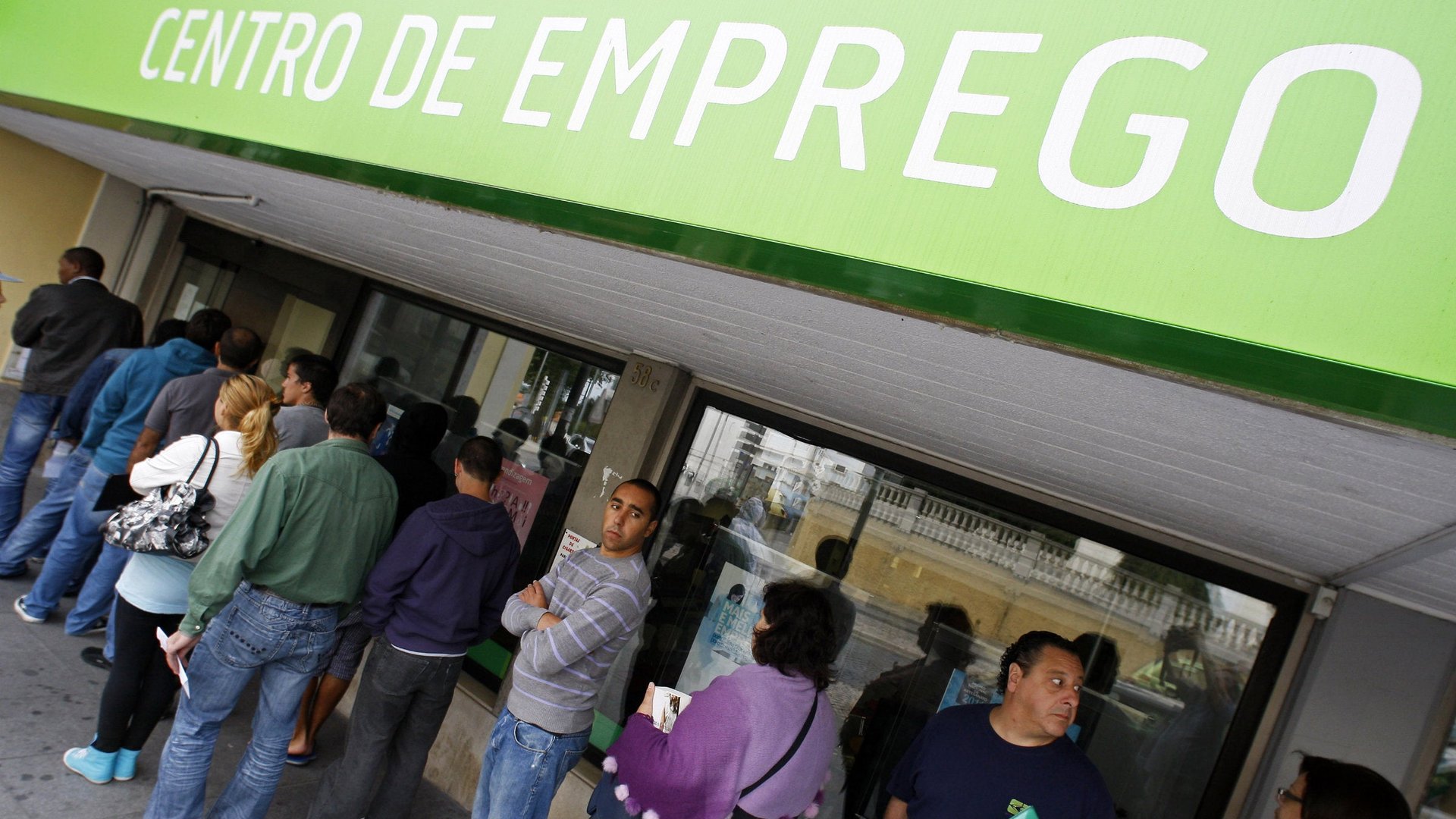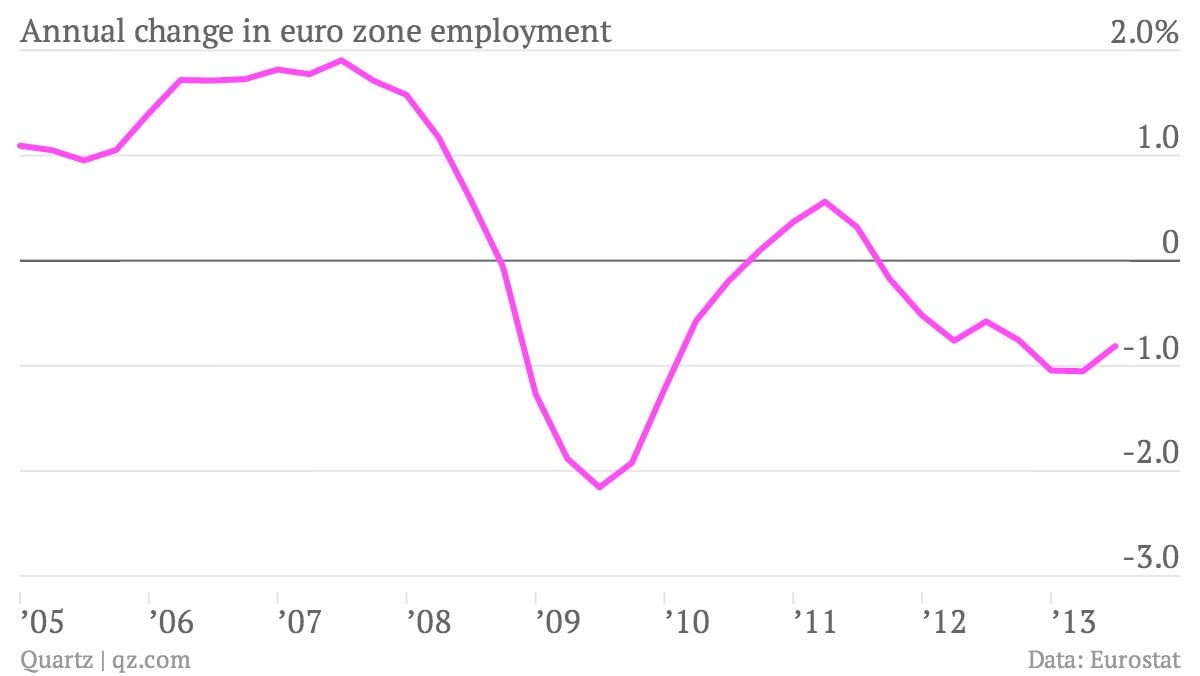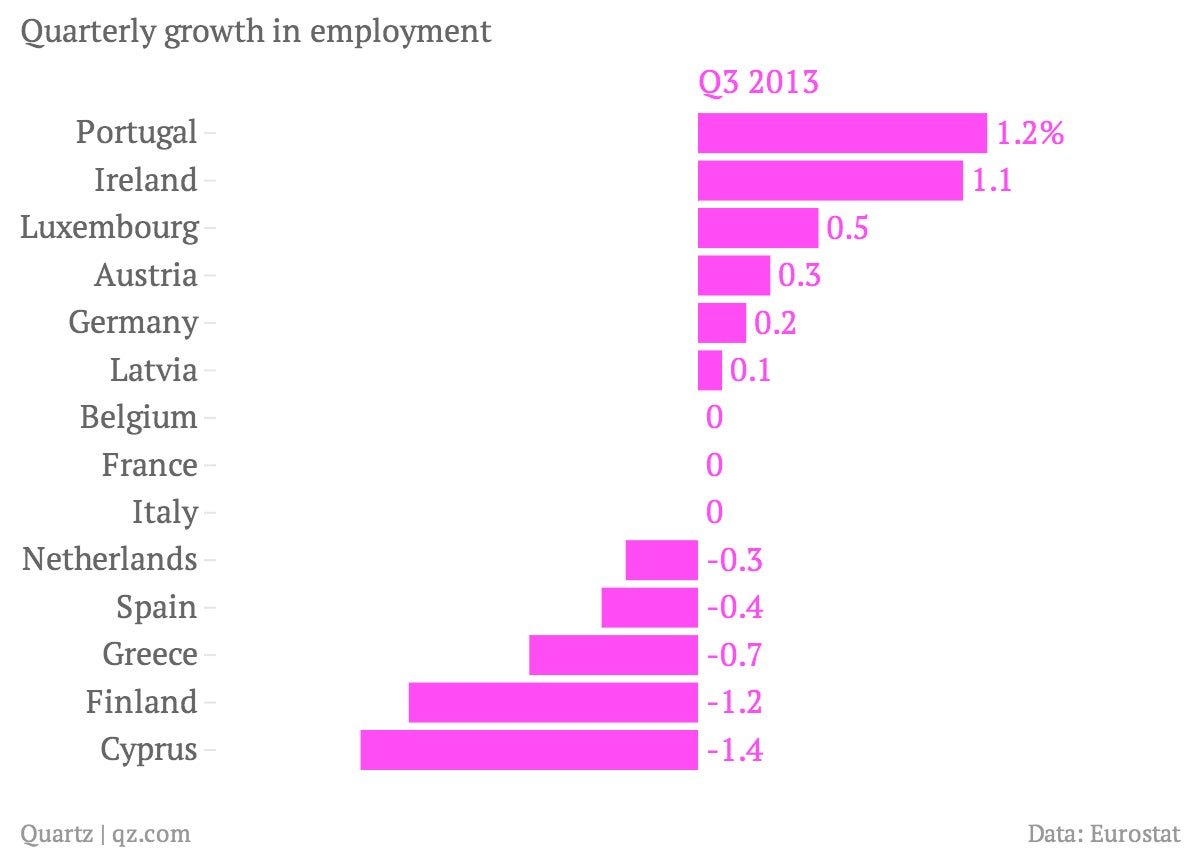The euro zone isn’t creating jobs, but at least it’s no longer losing them
It could be better, but it could also be worse. That’s the story of the latest data (pdf) on employment in the euro zone. In the third quarter, as in the second, there was no change in the number of people with jobs in the region. As a percentage of the population, employment is still lower than it was a year ago, but not by as much as before:


It could be better, but it could also be worse. That’s the story of the latest data (pdf) on employment in the euro zone. In the third quarter, as in the second, there was no change in the number of people with jobs in the region. As a percentage of the population, employment is still lower than it was a year ago, but not by as much as before:

In the country-level details, there is encouraging news from Portugal and Ireland, which top the table in terms of quarterly employment growth.
Portugal recently upgraded its economic growth outlook, boosted in particular by its increasingly competitive exports. Ireland, meanwhile, will officially exit its bailout program this weekend, the first euro-zone country to do so. Unemployment remains high in both countries, but at least it’s starting to move in the right direction.

Analysts at Bank of America Merrill Lynch recently crunched the numbers on growth and jobs in the euro zone. They reckon that, roughly speaking, the euro zone’s economy will need to grow by 2% to bring the unemployment rate—currently 12.1%—down by one percentage point. Few expect the economy to grow by that much for some time.
Thus, the analysts think that euro-zone unemployment will continue to improve, but it won’t return to pre-crisis levels—7.6% in 2007—for many years. France, for example, won’t regain its 2007 level of employment until 2018, according to the analysts. They are less sure about Spain and Italy, but they think these countries won’t regain the jobs they lost before 2020.
This is not an issue in Germany, of course—its unemployment rate has declined steadily throughout the crisis that battered its fellow euro zone members. Currently sitting at 5.2%, it’s down from 8.7% in 2007.